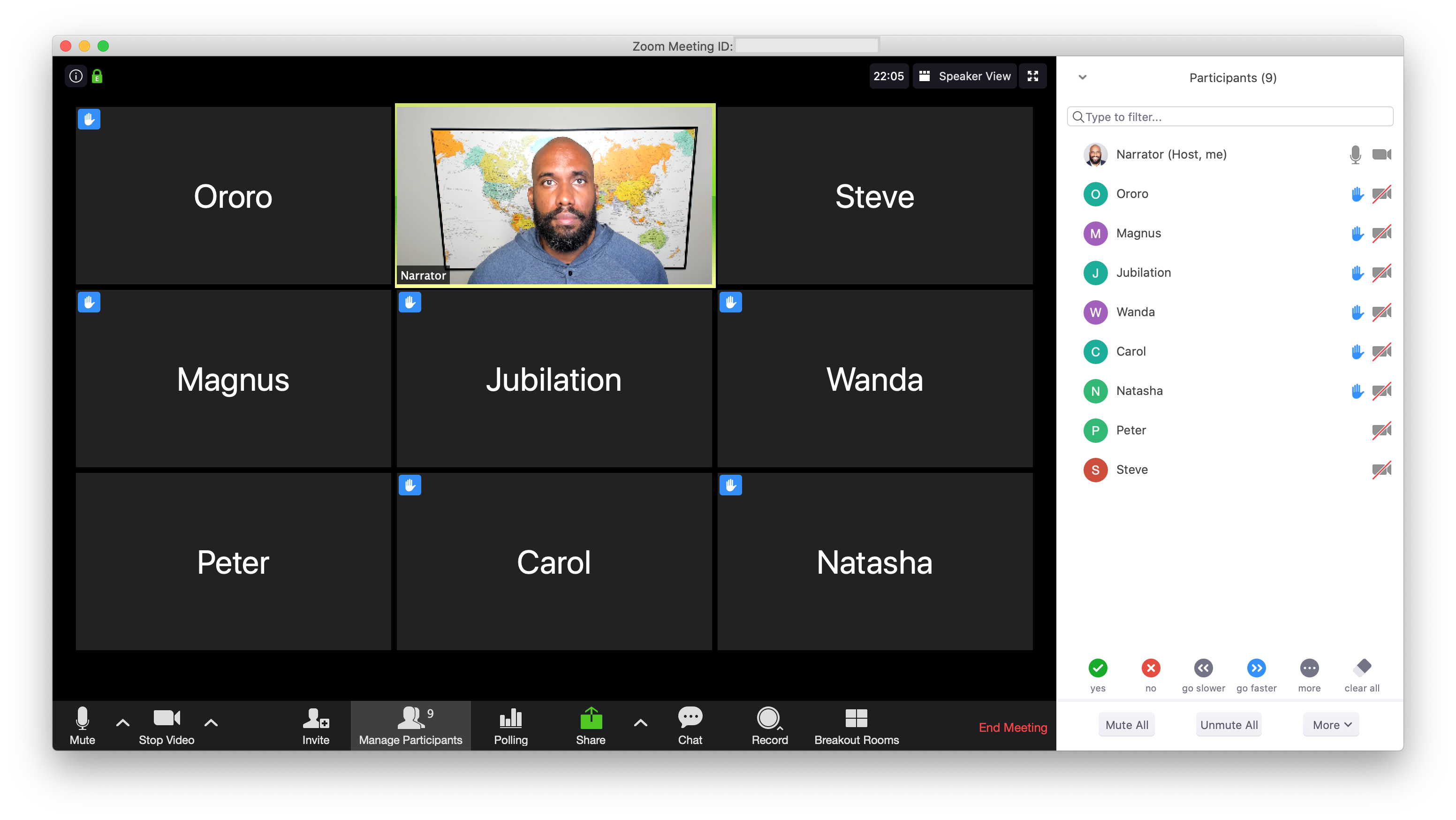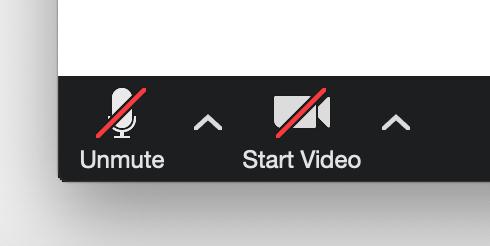
By Haley Rey, Head Copyeditor
Photos from anjuansimmons, rmselca, and reddit
Video from TikTok
Loneliness is one of the most difficult things to make the best of. During this pandemic, everyone can say they’ve felt the pain of loneliness at one point or another. So much has been taken away—community, certain freedoms, favorite activities, relationships, and plenty more. At McKendree, precautions have been taken just as the rest of the nation and/or world has done. However, the inevitability of loneliness has proven itself this semester when it comes to schooling. If there’s one word we’re all likely to be sick of, it’s this: Zoom.
When we thought we only had to finish the back half of a Spring semester via Zoom, it was a helpful tool that assisted our transition to learning in a pandemic. Now, it is seen as more of a fatiguing form of learning. Sure, it still gives students and professors the opportunity to communicate in a more connected way, but it is not utilized in the way it could be. Students rarely keep their cameras on or participate if they’re not greatly encouraged to do so, and this can be very disheartening for professors. After all, how can one teach comfortably if it feels like there’s no one there to learn?
There are videos circling on platforms like TikTok and Instagram that show how the professor’s mood changes when a student finally turns on their camera. These videos are tear-jerking; the teacher wants to do what they love, but because of the pandemic and lack of enthusiasm from students, their dream job becomes incredibly lonely. In my own online classes, I’ve seen examples of this as well. I always try to keep my camera on if I’m feeling well and am in an environment that allows me to do so. When no cameras are on, it’s obvious that the class is not going to be as involved as it could be.
https://vm.tiktok.com/ZMJxsw3mX/
I chose to interview three of McKendree’s wonderful professors to learn more about their end of it all. History professor Dr. Lauren Thompson, known by most on campus as “LT,” teaches three classes on Zoom, but only one out of the three is always on Zoom; the others are taught face-to-face. She shared with me that only about five of her thirty students regularly keep their cameras on. Mathematics professor Dr. Heather Dye teaches two classes on Zoom, and she explained that her students usually do not turn their cameras on, but they do participate in other ways. They can hit response buttons as she teaches, letting her know whether she should slow down or if they have a question to ask. English/Literature professor Dr. Nicole DeWall teaches four classes via Zoom, and she shared that many of her students turn their cameras on for class; at least half of her students keep their cameras on regularly. Perhaps there is an upside to Zoom, in some cases.
I asked these professors several questions. I wanted to know how they felt, as educators, to sometimes be the only person in the Zoom meeting with their cameras and microphones turned on the entire time. Their responses varied and demonstrated how different this semester is for everyone.
Dr. Thompson shared, “It makes me so sad when I talk to just a screen of ‘black boxes.’ Sometimes I ask questions and no one (or only the same few people with cameras on) responds. It makes me feel like I am talking to myself, or that I may be boring because no one wants to listen to me or cares what I am teaching. It also makes me frustrated and disappointed because I feel like students may be doing other things, i.e. homework for other classes, playing video games, sleeping, etc. I hoped this was not the case but when I meet with students in class and ask basic questions about the Zoom material, very few students can answer those questions. For the students who keep their cameras on and participate on Zoom, they are my lifeline, and I am so grateful for their interest and enthusiasm. Massive ‘thank you’ to those students!”
“It is strange,” Dr. Dye said. “I don’t like the sound of my own voice in recordings and being recorded via Zoom can be uncomfortable. I participated in online math seminars during the summer where I was the student. I was uncomfortable with my colleagues and the speaker seeing my pet or kids running around behind me when I was attending class. I know that as a student, I was worried about the effect of the background on my professional appearance or being distracting to the rest of the class. These are the same issues that my students identify when I talk to them in office hours.”
Dr. DeWall had a different experience.
“Students have varying degrees of comfort with being on camera during Zoom classes,” DeWall said. “There are many ways to gauge students’ participation levels during class that don’t require them to be visible: polls, chats, collaborative Google Docs, and Padlets. I also call on students whether they are on camera or not.”
These professors, all dealing with different groups of students, have had varying experiences when it comes to how they feel when teaching over Zoom. The next thing I was sure to ask them about was whether they thought their students were learning as much from them online as they would if the classes were in-person.
Dr. Thompson admitted, “They are learning the same amount of material, but I can only provide so much enthusiasm and discussion over Zoom. So, if my students meet me halfway, they will take as much from the course as fully in-person. However, if they are not ‘present’ and it comes time for an assignment, students may feel like they have to ‘teach themselves.’ So, I get that Zoom fatigue is real and is definitely not the same, but if students only want to give me 10% – I can’t go 90%, we have to both be 50-50. It’s a two-way street. Also, students only have to physically come to class once a week (as opposed to the normal 3 times) and many do not come. So, if we don’t like Zoom, but also don’t come to class – what am I supposed to do?”
Dr. Dye replied, “I’m really proud of the way the mathematics majors are doing in class this semester! This is a crazy semester. The unexpected keeps happening, schedules are changing—and my students have been working hard to stay focused and turn in assignments. ‘Learning as much’ is not something quantifiable—I want my students to learn mathematics and how to keep learning math. The situation may be different for the general education students in mathematics. The semester is stressful, and most people don’t think, ‘I’m stressed! Let’s do math!’”
Dr. DeWall answered, “I think so. I must say, I have been deeply impressed with my students this semester. They have experienced so many disruptions in their lives and yet remain committed to their educations. It’s inspiring.”
Clearly, all of these professors have had to deal with change. The worry of whether their students are still learning as much varies by class, subject, day—it can be very stressful to try to find a way to keep everyone engaged while possibly feeling like you’re on your own, yourself.
The last question I asked these professors was how much they thought the lack of in-person classes affects professors and students regarding feelings of loneliness. If this doesn’t pull on your heart strings, I don’t know what will…
“I know that loneliness is a real factor right now, even for those of us who consider ourselves introverts,” Dr. Thompson said. “My students have said that they miss the social life and campus buzz. Also, many of my freshmen say it’s hard to get to know people, and they feel confined to their room or ‘pod.’ I totally get that, and I am so sorry they don’t have the usual first-year college experience. From a faculty perspective, I am lonely. I miss having students in my office and meeting them on campus for lunch, coffee, etc. I miss coming to their events and supporting them. I am lonely too because I do not know if my students are enjoying the course because participation on Zoom and in-class is very low. I’ve been questioning my abilities as a professor and trying to come up with new ideas every day. Teaching during this pandemic has been one of the most challenging obstacles of my academic career (and I wrote a book!).”
Dr. Dye answered, “I really miss the small interactions with students and other people! Pre-COVID, I was already involved via Zoom in several math projects and seminars. Since COVID, I’ve also started attending a seminar in Europe and participating in other online math events. This has helped me cope with loneliness. I’ve mentioned these opportunities to students, but I do realize that students may not be interested in more math classes in their free time. I think there is a more significant impact on students especially with regard to the stage of life many students are in.”
Dr. DeWall replied, “The pandemic is causing widespread feelings of isolation and loneliness. We know that. But my virtual classrooms don’t feel lonely to me. In some ways, I feel like I know my students better this semester than I have in previous face-to-face classes. I also believe that literature is the best antidote to loneliness because when you read something with other people, you’re bonded in a special way. It’s incredibly helpful right now to read the stories of those who have come before us in order to put our own experiences into perspective.”
Fellow students, your professors care about you and miss you. Every person on campus is still learning to adapt, and the professors are doing what they can to ensure your college education is intact as much as possible. There are countless struggles that we face as the McKendree community during this time, and we have to remember that as students, we aren’t the only ones with our lives thrown into uncertainty. It’s wonderful to know that not every Zoom class is dry and lonely, but we can do better to help our professors help us. Remember that they’re here for us, whether it be to teach us the facts and send us out into the world, or to connect with us over a really great book.



Haley, thank you so much for your work on this piece. You did an incredible job canvassing our professors and helping us all see the bigger picture. I am sorry that I could not get back to you in time to contribute to the piece-this has been a weird and eventful semester for everyone., My apologies. I’m a squishy marshmallow emotionally, and the first sentence of your ultimate paragraph really brought a tear to my eye: “your professors care about you and miss you.” I miss chatting with students after class, in the hallways, in the 1828, and just crossing campus. I miss seeing faces rather than black boxes. Faculty cannot require students to use cameras, for both privacy and technological reasons. I usually can’t see if someone is sad or distressed or just joyous since I usually see black boxes. But we are all doing our best and my colleagues have been incredible in meeting the challenge of turning black boxes into fruitful learning experiences. Drs. DeWall, Thompson, Dye, and so many others, are the best of the best. They inspire me and, I know, inspire our students. Thank you again, Haley, for your wonderful article!
Haley, thank you for sharing these faculty perspectives. This pandemic has taken a toll on so many people in very different ways. It’s helpful to hear about others’ challenges and how they are coping, as we are all in this together. What is undeniable is that, despite the modality (face-to-face, Zoom, online, etc.), McKendree faculty care deeply about students and their learning. Thank you for sharing that message so eloquently.
Great article Haley! Inwoild love the linkmtonthose tik tok videos! Brenda